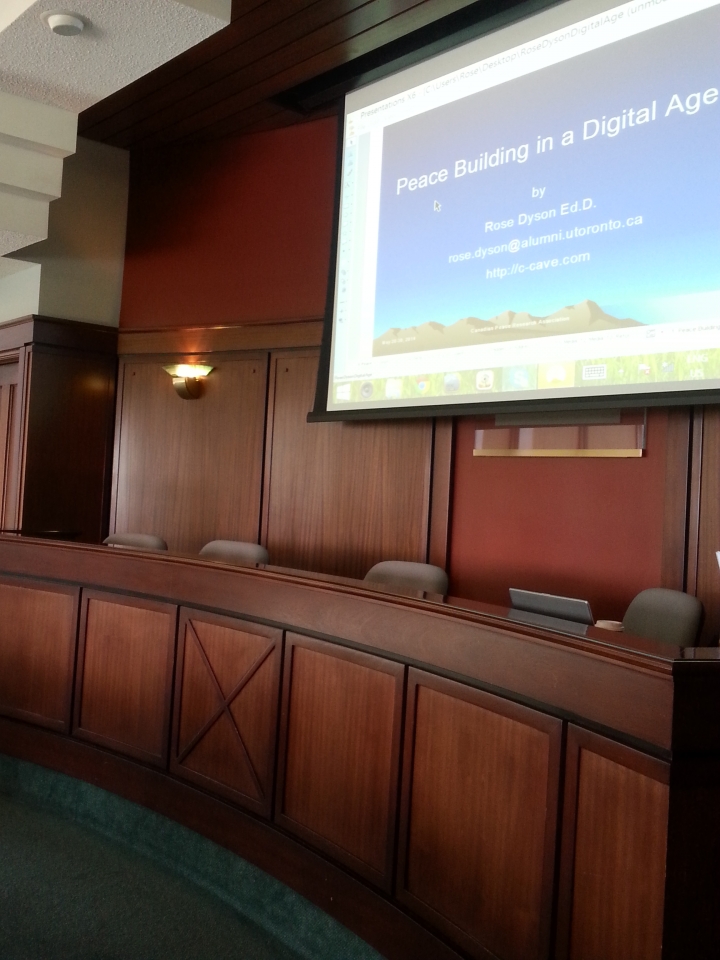Jessica Dixon
As a member of the media-obsessed public, I take pride in my expansive knowledge regarding technological developments and other forms of media produced by our digital culture. I have grown up with the re-enforced idea that this mind-set is a good one to have; however, critical-thinker Rose Dyson has dared to ask the question: “is it?”
On Wednesday, May 28 Brock University’s Schmon Tower Boardroom was filled with eager listeners as Dyson gave a keynote address for the Canadian Peace Research Association (CPRA) entitled “Peace building in a digital age”. Focusing on the implications surrounding the over-consumption of violent media, Dyson examined how this could impact on our current (and future) society. Dyson wondered how a generation brought up on nothing but sex, violence and consumerism could affect societal values and our ecosystem.
“Low level radiation (is) adding to the toxic carbon emissions in our air pollution” Dyson explained, outlining the physical effects media-production has had, “from cell phone towers and other Wi-Fi devices, research demonstrating how emails contribute to rising stress levels and digital dementia (has been overlooked).”
Labeling one facet of social-media as the problem would ignore the permeating presence of these issues within everything from videogames to the news. Before the availability of technology skyrocketed, punishment for violent actions and the monitoring of pornographic distribution was much easier. As the availability of technology increased, social values have changed. Leaning towards this less-than-new capitalistic ideal, even news broadcasters have been affected. Viewers are no longer seen as an informed public, but as ‘fans’ who understand which stations to watch for their own biases to be valued.
“The lure of the internet has created some perilous spaces for young people in particular.” Dyson continued, “Remarkably absent is any recognition… of the impact of role models which glorify violence, power differentials, and abuse of women and girls in popular culture.”
Although accessibility to the internet can drive some to find information that could help in the fight against the dark-side of a media-saturated public, Dyson understands that a problem has to be recognized on a greater scale first. Things can only change when we decide to act.

